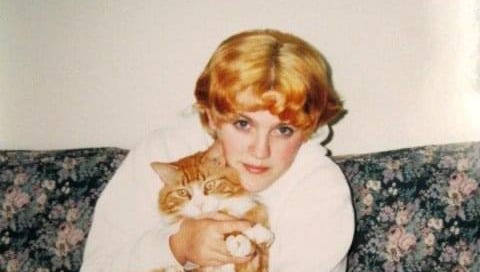Welcome to Healing is My Special Interest, the newsletter at the intersection of late-diagnosed autism and healing from high control religion. With all the talk of The Duggars in the news these days thanks to the docu-series Shiny Happy People, it’s been interesting to see people grapple with how similar so many facets of white evangelicalism were to the Bill Gothard cult. This is a part of my own story too. For pride month, I’m talking a bit more about my reality of growing up non-binary in a highly controlled religious environment. It’s really common for autistic people to be gender-diverse, and this is a part of my story.
Today’s post is for paid subscribers only. If you are queer and don’t have the funds to join our community at this time, either respond to this post or email me at dlmmcsweeneys@gmail.com and I will hook you up. For those who can financially support this newsletter, thank you so much!
A Good Christian Woman
I knew from age six that I had to be a missionary1. I was a girl, but I didn’t feel like a girl. I didn’t play with barbies or play with dolls or have crushes on anyone2. My thoughts were about God, and the end of the world that my mother was always talking about, and making sure everybody made it into heaven with me before the apocalypse.
Growing up in isolated evangelical homeschool culture means that the rigid gender binary was present in most settings. My family wasn’t exactly like the Duggars, but we were best friends with people like them my entire childhood. My father—who had three daughters at home—was a pastor and he believed only men were qualified to teach the word of God. My mom was an intensely religious person who both strove to conform to the Christian norms but also flouted some of them constantly. It was an incredibly confusing way to grow up, for a multitude of reasons. Women, I slowly absorbed through the litany of sermons and Christians books I was allowed to read, were to be quiet, devout, chaste. Their highest purpose was to get married to a godly man. To obey their parents until they obeyed their husbands, all as a way of obeying God.
I think my parents clocked early on that perhaps I wasn’t Christian wife-y material. So they pressured me to be a missionary from my earliest memories. I was given so many missionary biographies (and precious little else) to read that I practically had them memorized. And even though I didn’t have any labels for myself, I finally started to feel like I had a small blueprint for life: there had always been intense, solitary women who didn’t fit into the church. There had always been missionary women, sailing off for the colonizer Lord, people who changed their hair and dress and mannerisms and learned to blend into the people they had set out to convert. People who never knew how to conform to the gender standards of their age, and found more ease learning the customs of another culture. Of finding an acceptable way of standing out.
God loved me, but also I was a daughter of Eve—the lesser sex, the one who believed the serpent. God wanted to speak to me, but all of my thoughts about God must be filtered through the approval of men before I could share them with anyone else. God wanted me to boldly proclaim the gospel, but since I was a woman I needed to only preach to children, other women, or people overseas3.
In the world I was born into, there simply weren’t any other options.
//
As a child, I chafed against the constraints of what a “good girl” should wear. The fancy dresses that got me the most praise from adults were the ones I felt the most uncomfortable wearing. I hated my thick long hair and how it hurt my head when my mom braided it. I didn’t like looking at myself and often tried hard to forget I had a body. As the “rules” of gender were explained to me as a child I complained about them. Why can boys run around without a shirt but I can’t? It wasn’t fair. My parents laughed, but would not budge, so I learned to stop making a fuss. I learned early on that to be a woman in evangelical Christianity is to accept the unfairness with a smile. And if you couldn’t do that, at least you could be silent.
Keep reading with a 7-day free trial
Subscribe to Healing is My Special Interest to keep reading this post and get 7 days of free access to the full post archives.




